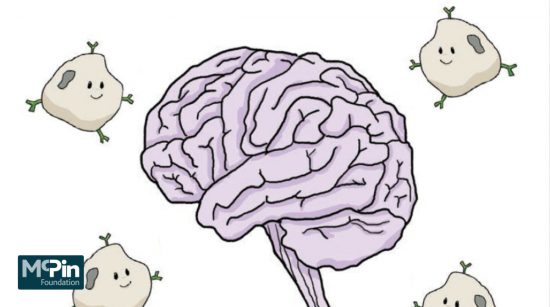A service-user member of the LEAP for the SINAPPs project looking at inflammation and psychosis shares their experience.
What is the SINAPPS (Study of Immunology in Antibody-Positive Psychosis) project?
There is a theory that psychosis in some people is caused by the brain’s response to inflammation in the body.
The study is trying to identify these people and then test whether a treatment designed to help the immune system might improve symptoms of psychosis, and is expected to run until the end of 2021.
Tell us why you joined the Lived Experience Advisory Panel (LEAP) for SINAPPS?
I joined just over 12 months ago. I was excited to learn of this new study because I was becoming aware of emerging research looking at the role of the immune system in mental health.
I had often wondered, due to periods of ill health earlier in my life and some unexplained symptoms, whether there was a link between my mental health and immune system.
Although I knew that being part of the LEAP wouldn’t be giving immediate answers about this link, I was really motivated and interested to get involved in this new area of research.

Have you had to learn lots of complicated science to take part?
Definitely not! Being part of the LEAP has involved reflecting on personal experience and using that to shape the design and implementation of the research.
For example, the study involves some participants coming into hospital for an infusion of the antibody ‘treatment’ via a drip. This would be hard-going for anybody but for someone experiencing psychosis, there could be additional challenges.
As a group, we were able to make practical suggestions for how to cope with being in hospital, for example, having some activities to keep the person occupied as well as planning the appointments to minimise disruption to the person and helping with travel.
This hopefully improves the experience for the person as well as improving the number of people choosing to complete the study. It has been fun learning about the science and we also contributed to developing a service user-friendly booklet, explaining the biology of inflammation and its possible impact on mental health.
What have you enjoyed most about being on the LEAP?
The research team often come to the meeting with recent challenges and I really enjoy that we all collaborate to problem-solve these together. We have had to think creatively and practically and I believe this will have a positive impact on the research outcomes, and ultimately for people who might benefit from the results in future.
This was written by a service-user member of the LEAP who wishes to remain anonymous.
